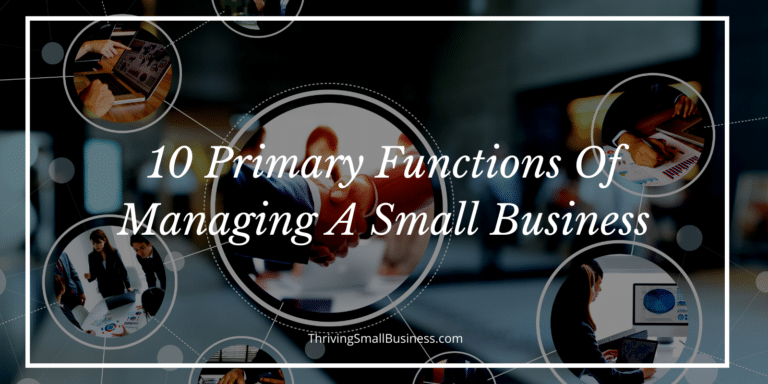How Do You Define Outstanding Customer Service?
5 minutes
Customer service is seen in all industries and across all demographics.
It is important because if the purchasers of our goods and services don’t feel like they are taken care of, they will soon find another organization that can, and will take care of their needs.
How Do You Define Outstanding Customer Service?
Customer service is a common term we are all familiar with, which means “one who aids or provides help to the purchaser of a good or service”.
Successful organizations have figured out the importance of, not only providing their customers with a level of service (did you know lots of organizations have BAD customer service?) but providing outstanding customer service.
Which is what sets them apart from their competition. Quick Trip is a great example of an organization that understands customer service.
Organizations that do a good job of this can develop loyal customers who return and sometimes bring their friends.
Why Is Providing Great Service So Important?
Did you know that when someone has a bad service experience, they tell 10-15 people about it? However, when a customer has a good experience, they may tell only 5 people.
We have all heard the horror stories of a bad service experience. And as with anything else, the more often a story is told, the more likely it is that the facts will get distorted (did you ever play telephone?).
So by the time the story gets to the 10th or 11th person, you can bet the facts are a bit exaggerated.
This is frightening because situations like this can really affect the public’s “perception” of an organization.
And the saddest fact is that typically, the organization isn’t even aware that an incident happened. Otherwise, they would have the opportunity to perform service recovery!
As an example, there is a hospital in my town that has this very type of public perception.
It doesn’t matter who you mention the name of the hospital to, there is a common response and “perception” that it is a bad hospital.

I can honestly say I have never really heard a specific negative story about the hospital but like others, I have a negative perception but nothing to base it on.
This is why it is so important to manage customer perceptions and make it easy for customers to give feedback within a structured Quality Management System.
Why You Want To Encourage Customers To Complain
As often as we hear complaints about a business from friends and family. Only a small percentage of customers are comfortable complaining when they have a bad experience.
Unfortunately, those are the customers who say nothing but take their business elsewhere.
As an example, I went to the same physician for years and years.
Over time, the service the office staff gave patients had gotten unbearable. This incompetent staff was so bad that I decided to change doctors because I just didn’t want to deal with his office staff any longer.
There was no one incident that prompted my decision. It was merely an atmosphere of accepted rudeness, inefficiencies, and incompetence that drove my decision.
And, the worst part of this entire incident is that this doctor never called me to ask why I left – even after I called to have my medical records transferred to a different doctor’s office.
Very sad both for me (because I really liked him as a doctor) but for him because he doesn’t even realize the experience his patients are having with his staff. He doesn’t ask, so he doesn’t know.
You may be wondering why I didn’t complain.
I did offer my help to him (because service quality was my profession at the time) during the course of the many years I went to him to help with his customer service.
He did not seem interested.
But There Are Those Who Set The Standard
An opposite example is an experience I had at a restaurant I went to for lunch with a friend. Our experience demonstrated this restaurant’s commitment to its service guarantee.
It is called Dewey’s Pizza in St. Louis. I met my friend there, and we hadn’t seen each other in a long time so we were very caught up in our time together.
We ordered our lunch and when the waiter brought it out, my friend’s order was wrong. The cooks put the wrong meat on the order.
The waiter apologized, took it back, and promised to have it redone quickly.
Time went by, and we were enjoying each other’s company, and soon her order came out and was wrong again!
This time, the waiter was very embarrassed and apologized profusely and gave us his word to get it fixed.
He also said instead of wasting the order, he offered to wrap it to go for my friend.
She knew her husband would eat it, so she agreed. Finally, the order came out the way she had ordered it.
We continued to enjoy our time together, and when our bill came, the manager of the restaurant came out and explained that he did not charge us for her lunch, gave her the wrong order to go, AND gave her a $25 gift card to come back!
We were both blown away.
The funny thing is we were so engrossed with catching up with each other that we really didn’t care about the long delay in getting the correct order.
We went back and enjoyed another lunch, and I have told this story to countless people.
Now, in all fairness, had this been a workday and if we had been on a limited lunch hour, this could have turned out much differently, but their response to the issue was immediate and thorough.
This is a great example of Service Recovery.
Spending the time to know who the customers are and putting systems and processes in place to meet their needs are the keys to maintaining and growing a customer base.
What do you do to enhance the experience for your customers?






